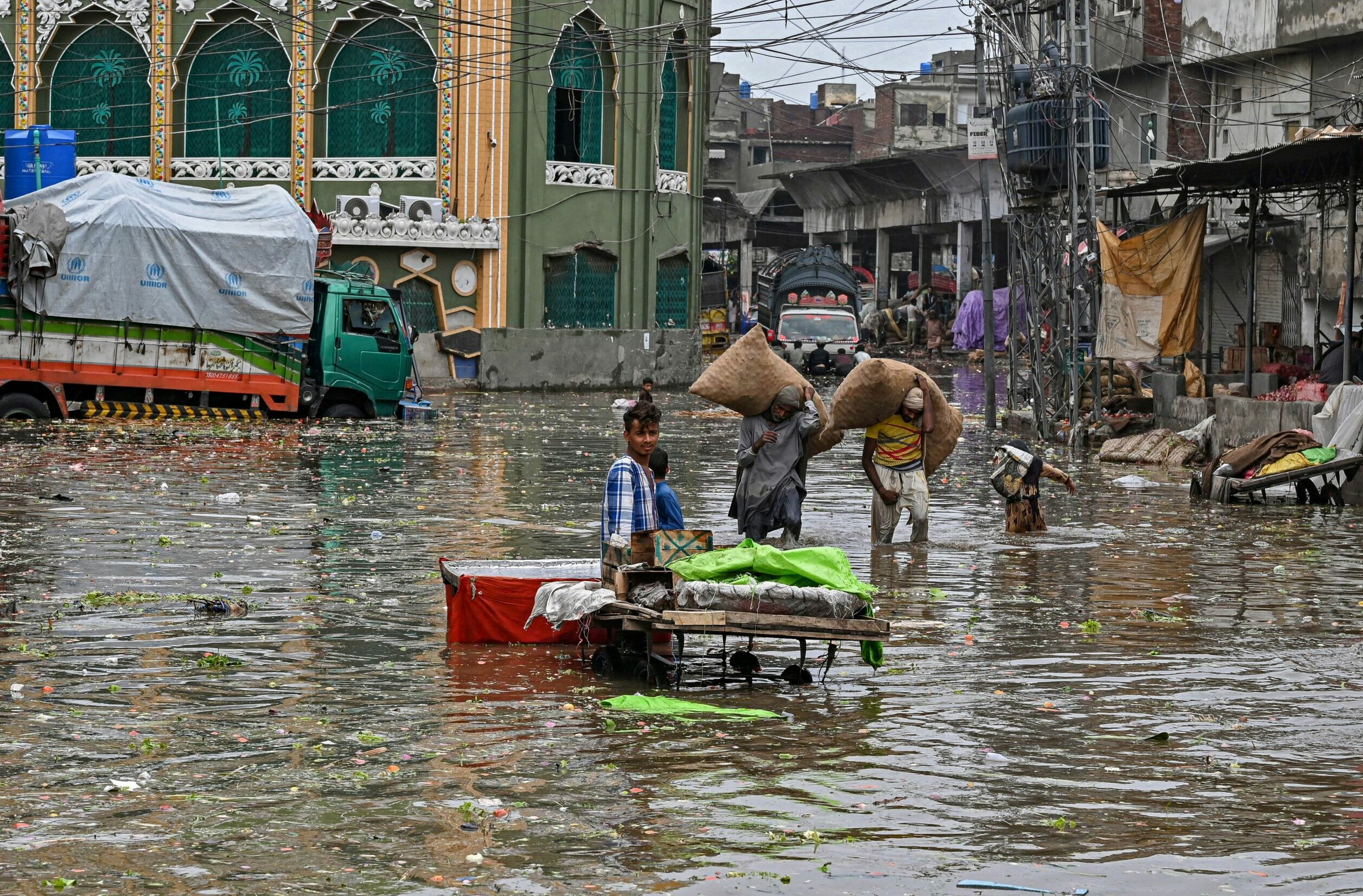The world is already approximately 1.3°C warmer on average than it was during pre-industrial times.
The world is already approximately 1.3°C warmer on average than it was during pre-industrial times. The last eight years have consequently been the warmest yet, according to the World Meteorological Organisation, with 2022 most likely to be the 5th or 6th warmest.
The net result is both increased climate variability and more frequent and severe extreme weather events that have wider impacts. In 2022, already high food prices in Europe, for example, were compounded by the region’s worst drought in 500 years. Flooding in Pakistan also impacted more than 33 million people, causing an estimated £26bn in financial losses. The US also experienced its third-highest number of billion-dollar disasters since 1980.
Attribution studies indicate that events like these were made many times more likely as a result of climate change.
Despite ever more ambitious international climate policies, the world doesn’t yet appear to be on track to change quickly enough. The International Energy Agency warns that global emissions remain on an unsustainable growth trajectory. A further report says there is also a significant gap between proposed levels of carbon removal and what will be needed to limit warming to well below 2°C.
This means increased insecurity for people, states, businesses, the international community and ecosystems themselves.
Climate change is fuelling geopolitical uncertainty
Both climate change impacts and actions taken to mitigate them are fuelling near-term geopolitical uncertainty and making many of the security threats which businesses face today more complex and complicated to respond to. Whether by amplifying great power rivalries, exacerbating conflict and instability risks, weakening global resilience to future crises, or testing international norms and partnerships, increased climate variability and extremes are now adding new dimensions to an already complex global risk picture.
Our research shows that climate-related concerns will result in greater insecurity this year across sub-Saharan Africa by continuing to drive competition for arable land and water. Such developments, we assessed, will drive up broader regime instability risks in Burkina Faso, Ethiopia, Kenya, Nigeria and Mali – to name just some – including fuelling inter-communal violence, driving up food prices and making hardship protests and unrest more likely.
Our analysts also identified climate change as a key driver of increasing food insecurity in the Middle East. Alongside the war in Ukraine, climate-induced crop failures will, in our estimation, put additional pressure on governments this year, particularly in Lebanon, Syria and Yemen, to provide food staples to people. This would likely result in unrest, more pressure on state and aid agencies, as well as continued northwards and rural-to-urban migration.
Global volatility resulting from climate change activism impacts businesses
A further issue is climate activism. It is a growing concern for businesses in Western economies such as Germany, France, the UK and the US. However, with the increasing frequency of such climatic events globally, it now seems increasingly likely that climate activism will also proliferate, with activists poised to mount more frequent and disruptive campaigns, often targeted at businesses. Emerging markets, including India, South Africa and Mexico, were notably among those countries identified as being most exposed to future activism.
For businesses, increasing global volatility resulting either directly or indirectly from climate change will increasingly impact where and how they can operate, while also shaping the nature of threats which their people will face. Some markets will become less accessible while others may open up creating new opportunities. For some businesses, the risk of stranded assets will almost certainly become even more acute.
Operating in a more extreme climate will require adaptations to infrastructure and ways of working, which will come at a cost. To comply with changing environmental regulations and standards and avoid reputational risks, businesses will likely need to introduce new measures and processes.
By fuelling greater levels of instability globally, climate change will also contribute towards the creation of a more complex business landscape and increase the levels of uncertainty which businesses will have to accept, especially when making critical decisions.
Incorporate climate considerations into your strategic decision-making
Businesses and in particular corporate security teams will therefore increasingly need to incorporate climate considerations into strategic decision-making. It will no longer be sufficient just to consider how the immediate physical consequences of climate change will impact business interests. Doing so would be a failure of imagination. Instead, maintaining decision advantage within a climate-disrupted future requires thinking about how climate change is indirectly shaping threats, while also contributing towards the unravelling of the systems and orders that have traditionally defined instability.
Otherwise, decision-makers will be more likely to be making decisions without a complete risk picture. Doing so risks inadvertently offering a false impression of security to stakeholders. Not considering the potential security consequences of climate change also increases the probability that security professionals fail to anticipate the characteristics and timing of future crises, thereby unnecessarily placing their most prized people and assets in harm’s way.
Matt Ince is Strategic Intelligence Manager at Dragonfly, the geopolitical and security intelligence firm.
Image: People carry sacks of vegetables as they wade across a flooded market after heavy rainfall in Lahore, Pakistan, on 26 June 2023. Photo by Arif ALI/AFP via Getty Images.




